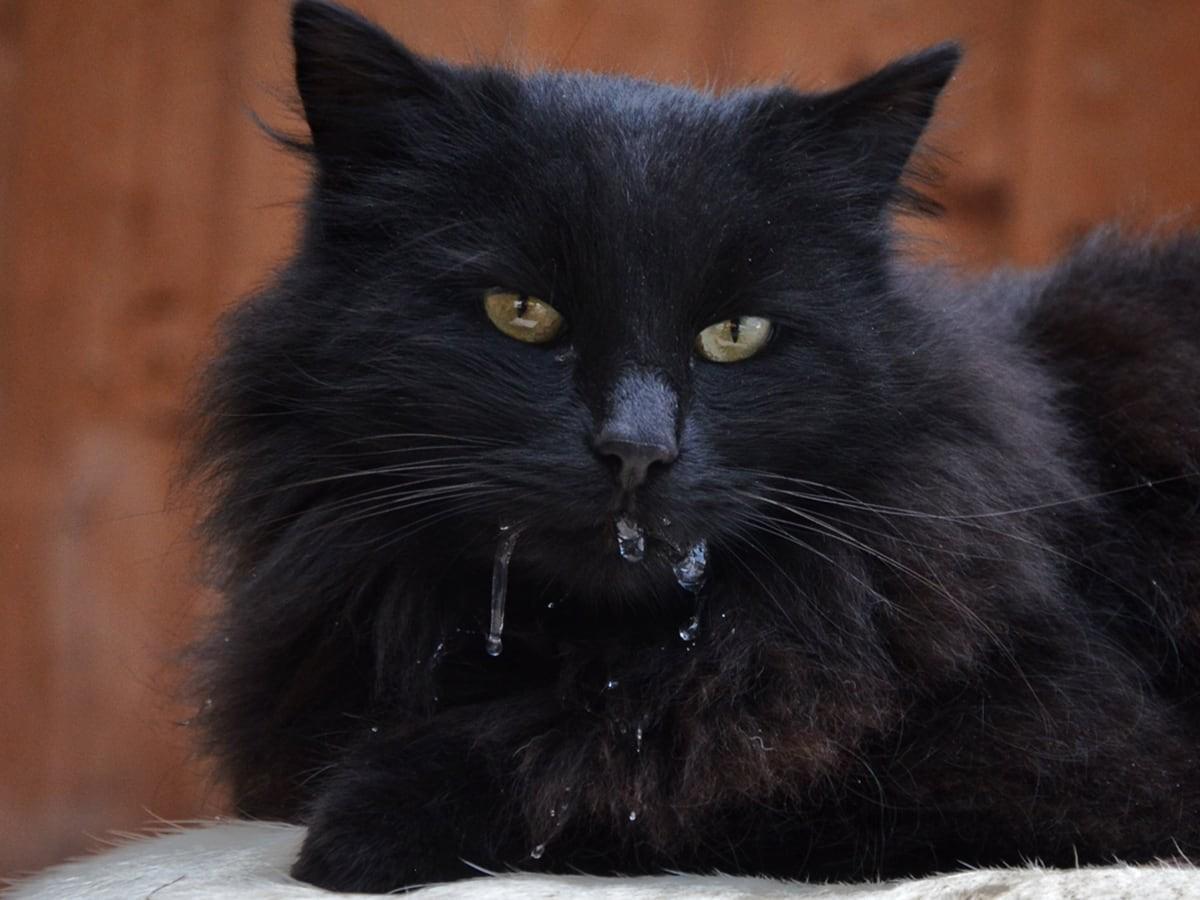If you're a cat owner, you might be surprised to see your feline friend drooling. After all, drooling is more commonly associated with dogs. While a bit of drool is usually nothing to worry about, excessive drooling in cats can sometimes signal an underlying health issue. So, why do cats drool, and when should you be concerned? Let's explore the common causes of cat drooling and when it's time to consult your veterinarian.
Is It Normal for Cats to Drool?
Yes, occasional drooling in cats can be entirely normal. Cats may drool when they're feeling relaxed and content, often while purring or kneading. This behavior can be traced back to kittenhood, as kittens often knead on their mothers to stimulate milk production while nursing. The association between kneading and a pleasurable experience can trigger drooling in adult cats.
Additionally, cats may drool when they're anticipating a tasty meal. The smell and sight of food can stimulate saliva production, leading to some drool.
However, if your cat is drooling excessively or consistently, it's important to investigate further, as this could indicate an underlying problem.
When Does Your Cat's Drool Become Abnormal?
If your cat is drooling more than usual, it's essential to determine the cause. Here are some potential reasons why your cat might be drooling excessively:
Dental Disease
Dental diseases like gingivitis, periodontal disease, or tooth abscesses can cause pain and inflammation in the mouth, leading to increased salivation. Other signs of dental problems may include bad breath, difficulty eating, pawing at the mouth, or bleeding gums. If you suspect dental issues, schedule a veterinary checkup for a thorough examination and appropriate treatment.
Foreign Body
Sometimes, cats may drool due to a foreign object lodged in their mouth or throat. This could be anything from a piece of string to a small cat toy. If you notice your cat drooling excessively and pawing at their mouth, check for any visible objects. If you can't see anything, but your cat seems distressed, seek veterinary care immediately.
Heatstroke
Although less common in cats than dogs, heatstroke can still occur. If your cat is exposed to high temperatures and becomes overheated, they may drool excessively. Other symptoms of heatstroke include panting, lethargy, vomiting, and disorientation. If you suspect heatstroke, cool your cat down immediately and seek veterinary care.
Nausea
Nausea can also cause drooling in cats. This could be due to various reasons, such as motion sickness, dietary indiscretion, or underlying medical conditions. If your cat is drooling and showing other signs of nausea, such as vomiting or loss of appetite, consult your veterinarian.
Ingestion of Toxins or Unpleasant Substances
Cats may drool after eating or licking something toxic or unpleasant-tasting. This could be a poisonous plant, a household chemical, or even a bitter medication. If you suspect your cat has ingested something harmful, contact your veterinarian or the Pet Poison Helpline immediately.
Trauma
Injuries to the mouth, such as burns or cuts, can cause pain and inflammation, leading to drooling. If you notice your cat drooling and suspect they may have injured their mouth, take them to the vet for an exam.
Tumors
In rare cases, tumors in the mouth or throat can cause excessive drooling in cats. If you notice any unusual growths in your cat's mouth or persistent drooling, a veterinary checkup is crucial for diagnosis and treatment.
Neurological Issues
Certain neurological conditions can also affect a cat's ability to swallow, leading to drooling. If your cat's drooling is accompanied by other neurological symptoms like weakness, difficulty walking, or seizures, seek veterinary care immediately.
Why is My Cat Drooling So Much?
If your cat is suddenly drooling a lot, it's important to assess the situation and look for other accompanying symptoms. If your cat is otherwise acting normal, it may be due to a harmless reason like excitement or anticipation of food. However, if the drooling is excessive, persistent, or accompanied by other concerning symptoms, it's crucial to consult your veterinarian.
When to Take Your Drooling Cat to the Vet
If your cat's drooling is accompanied by any of the following, seek veterinary care promptly:
Lethargy or weakness
Vomiting or diarrhea
Difficulty breathing
Loss of appetite
Fever
Oral pain or swelling
Neurological symptoms
Key Takeaways
While occasional drooling is normal in cats, excessive or persistent drooling can be a sign of an underlying health issue. By understanding the potential causes and monitoring your cat's behavior, you can ensure they receive the appropriate care and attention they need.

If you need a story or someone to talk to your cat like a person, I’m your person. With 3 cats, 1 dog, and a lifetime of pets, I write from experience, usually with a cat on my keyboard and a dog in my lap.
Cat Drooling: What it is and Why They Do it | Festival Animal Clinic
Feline Oral Squamous Cell Carcinoma | NC State Veterinary Medicine
Feline Dental Disease | Cornell University College of Veterinary Medicine
Know the Signs of Poisoning in Dogs and Cats | Pet Poison Hotline
My Cat Is Drooling a Lot, What Does it Mean? | Zoetic Pet Care
What to Do If Your Cat Drools | The Spruce Pets
Why is my Cat Drooling | Better Vet











